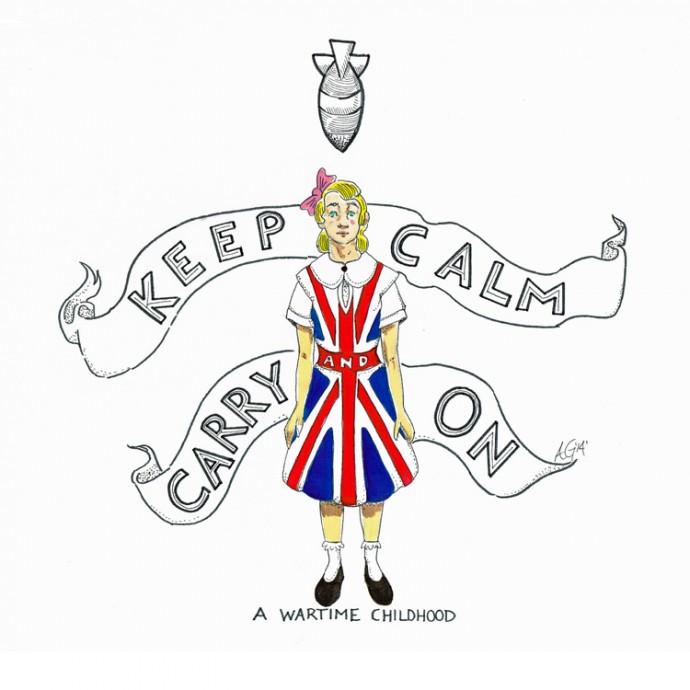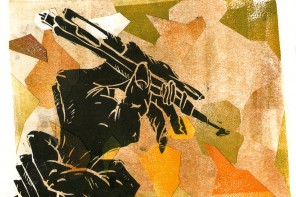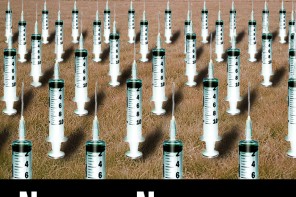People’s lives have been disrupted by war since time immemorial, and it’s the family unit that suffers its disturbances and effects more than any other social group. What must it be like to be a child, growing up amid chaos and potential death? Does life go on as usual? Is it possible to be unaffected? The children who were raised amidst the backdrop of WWII are now octogenarians, whose numbers are falling with each year and, before long, will be gone forever. Sensa Nostra interviews Joyce Vidler about her impressions as a child evacuee from London.
Leaving my home, leaving my mother and father, going away to somewhere strange and not knowing who I was going to stay with. These were the strongest sensations I can remember en route to the train station on the day we were evacuated.
I was six when war was declared in 1939 and immediately the schools started organising everything for the mass evacuation of London’s school children. On the day of the departure, my mother took my older sister and me to the train station. It was quite emotional, and many children and parents were crying. No one knew when they would see each other again. Looking back, it was quite a traumatic time, many of us having never been away from home before.
The parents all waited while we boarded the train and waved us off, but my mother didn’t. She left before the train did. She had told us to behave ourselves, be good, those sorts of things. She didn’t give us kisses goodbye, but she never did anyway. Not even in that situation. I don’t really know why that was. She probably had to get to work. She was unemotional; that’s all I can say. Maybe she was upset and just didn’t show it.
We were taken to an industrial town called Northampton. We knew that the people who would be taking us in would be waiting for us there. Someone called out the names of all the children and the people who were to house them stepped forward. Ours was a couple in their fifties. She had a kind face and he worked in a shoe factory. They seemed quite nice. Of course it was strange, being in someone else’s house and hearing the different accents. I would have liked to have stayed with them, but after only a few months we were moved into the house of another family. Nobody said why, but they must have felt that they couldn’t cope with children. We stayed with the next family very briefly, until my mother found out they had men lodgers living under the same roof and promptly had us moved again, this time into an old pub with a nasty, cantankerous old lady.
I never saw much of my sister. Whenever I went near her she would punch me. I spoke with her recently and she told me that she can’t really remember me as a child. Don’t you find that strange, there only having been the two of us? When we got a bit older we got on better and started to do more things together, but I think my mother affected her somehow. She didn’t encourage us to be close, or bring us closer together. Like I said, I can’t remember her ever showing us affection. I’m not sure if this is an example of affection, but I remember sometime around 1941, having returned from a short trip away with my aunt, I was waiting for my mother at my grandmother’s. As soon as she came in, she rather angrily verbally attacked me for seemingly no reason. She just said how dirty and scruffy I looked and didn’t seem at all happy to see me. This was in front of my aunt, so she was criticising her as well. I was very upset by it. In general, I think she showed more anger than love but, apart from that particular incident, I don’t think it affected me.
In a way, my mother was quite a bright woman, and she was quite ambitious. She had quite a good job where she was in charge. She had brains, you see, which, if it had been now, would have been developed. I think she would have done something with her life if she were around today. She wanted to work and she liked to work, which gave me a better life than a lot of children had. My mother had a doll’s house made for me and bought me nice clothes. She was good in that way. She came to visit us briefly at the ‘cantankerous old lady’s’, and when she returned home she took my sister with her. Thankfully, she had me moved for the fourth and last time into the home of a nice, normal family.
We still went to school throughout this whole period, and I did make some friends, but I would often find myself on my own. I don’t remember ever crying about anything, and I don’t remember ever feeling very lonely or homesick. I just did my own thing as a child. Children were seen and not heard in those days.
We started sleeping in the air raid shelters, as Coventry, nearby, was getting badly bombed. Nobody liked to have to go down there, but we were all in the same situation and just had to accept it. We kept our fear inside and sat there quietly until it was all over. It was called the Great British Spirit. Everybody knew what was going on, and if somebody were to start screaming and shouting it would only upset everyone. I don’t remember any children crying—nobody cried, but we were frightened.
I returned to London at Christmastime in 1941. It was my own decision. I went back to school and stayed with my grandmother for most of the day. My grandmother—my father’s mother—more or less brought us up, and she was more like a mother to me. She showed me a lot of affection and it seemed that I meant as much to her as she did to me. My father was also quite affectionate towards us, and I think he and my grandmother counteracted my mothers’ lack of emotion.
My grandmother, I would describe as a tiny woman who’d had thirteen children. She suffered asthma badly and was confined to the house. She couldn’t even sleep in a bed because she wasn’t able to breathe properly. My mother didn’t really get on with her, but she was glad that she had her to look after us.
Fortunately, I had missed the blanket bombings—or ‘The Blitz’, as it was known—but then we got the rockets and the doodlebugs. In a way, they were worse because there was no warning when they were coming. They fired them from wherever and you just had to hope you were somewhere safe when they hit. Once when I was fourteen, I was out walking when one came over. I remember stopping in my tracks and panicking, thinking ‘God what do I do?’ I didn’t do anything, but fortunately it didn’t drop near me. I was terrified and couldn’t even run away.
My grandmother had stayed in an air raid shelter every night for a whole year. They’re often damp, and that, along with the understandable stress of having six sons in the forces, we think contributed to her sudden death. I don’t remember expecting her to die, but pneumonia set in towards the end of the war and she went very quickly. It took a week or so for her to go. It was devastating to our family. She was a lovely woman and I really loved her, more so than my mother.
Everybody went mad when the war finished. People were literally dancing in the street. When that died off, it became quite a depressing period. It was easy to forget that it would be a long time till things would be back to normal. We called the returning soldiers ‘bomb happy’, to describe the unease they seemed to experience on returning. For them it was difficult to settle back into life. After all, everything was not as they had left it and there was a sense of their surroundings being unfamiliar to them; their kids had grown up quite a bit. Some of them had been away for a long old time.
After the war, I went to work and then got married. That was the expectation: leave home at twenty or twenty-one, get married, and start your family. That was it; there was really nothing else to do. I made sure that my mother’s lack of emotion didn’t influence how I was with my children. I made a conscious decision to make sure that they grew up knowing affection. My relationship with my mother improved when I got married and had kids. We used to go and see them with the baby, our firstborn, quite often. My mother and father had another child of their own, a son, when I was seventeen. So he was only three years older than my eldest daughter.
Life was simple and we didn’t know much. It’s hard to describe, but people are just much more aware these days. Just look at the computer. I do think, in our own way, we were happier than people are today. There weren’t the same social problems that there are today, but on the other hand people are looked after better now. Everybody’s got everything: washing machines, fridges. Women used to get down on their hands and knees and scrub the floors; that doesn’t happen as much now. That’s one thing that’s better now. Things started to alter for women after the war. They started to go out after having children and get decent jobs. Things progressed.
I couldn’t see another war happening. If it were to happen, it would be a different thing. I think the atomic bomb has been the big deterrent to war as we knew it. When the bomb was dropped, we were all shocked and could sense the terrible thing that had happened. I think the weight of that realisation shifted attitudes. A war wouldn’t be the same these days. Not in countries like America and the UK. People are just different today, aren’t they?







